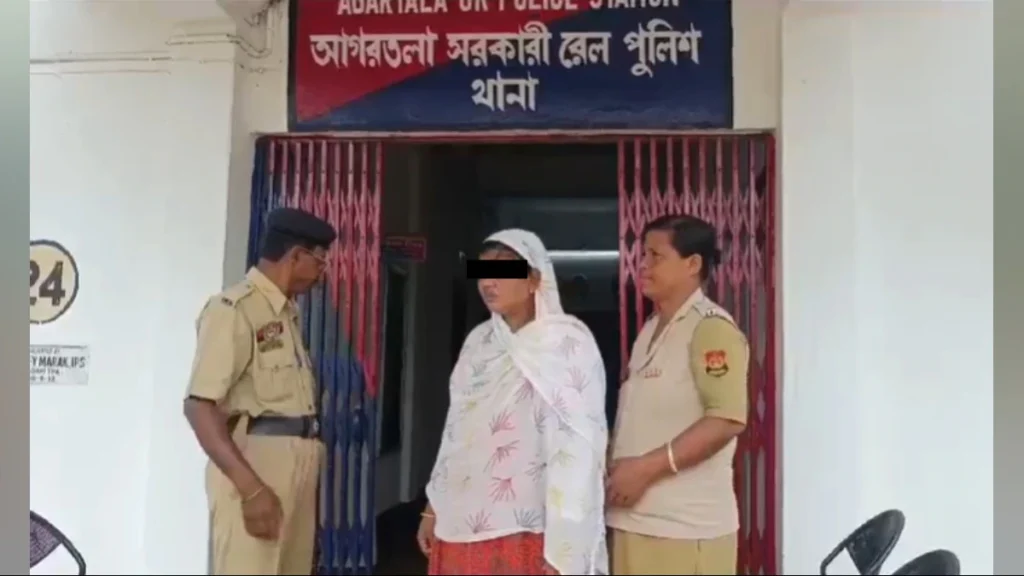Authorities in Tripura have apprehended a woman suspected of being involved in human trafficking operations across the Bangladesh-India border. The arrest comes amid ongoing efforts to combat the illicit trade of human beings and prevent the exploitation of vulnerable individuals.
The woman, whose identity has not been disclosed by officials, was taken into custody following an intensive investigation into her alleged involvement in facilitating the trafficking of individuals between Bangladesh and India. Authorities have not provided specific details regarding the nature of her role in the illicit activities, but they have indicated that she is believed to have played a key role in the trafficking network operating in the region.
Human trafficking is a grave offense that entails the exploitation and abuse of individuals, often for purposes such as forced labor, sexual exploitation, or organ harvesting. Traffickers prey on the vulnerabilities of their victims, coercing or deceiving them into situations of exploitation from which escape may be difficult or impossible.
The arrest of the woman suspected of involvement in human trafficking represents a significant step forward in the fight against this heinous crime. It underscores the commitment of law enforcement agencies in Tripura to identify, apprehend, and prosecute individuals involved in trafficking operations, thereby safeguarding the rights and dignity of vulnerable individuals.
Authorities in Tripura have been working closely with their counterparts in neighboring Bangladesh to address the issue of cross-border human trafficking. The porous nature of the Bangladesh-India border presents challenges in effectively combating trafficking activities, but concerted efforts by law enforcement agencies on both sides have yielded notable successes in recent years.
Efforts to combat human trafficking in Tripura extend beyond law enforcement to encompass prevention, protection, and victim support initiatives. Collaborative efforts between government agencies, non-governmental organizations, and civil society groups are aimed at raising awareness about the dangers of trafficking, providing support services to victims, and strengthening legal frameworks to prosecute traffickers effectively.
Despite these efforts, human trafficking remains a pervasive and complex issue in Tripura and other regions along the Bangladesh-India border. Poverty, social marginalization, and lack of opportunities create fertile ground for traffickers to exploit vulnerable individuals, necessitating continued vigilance and concerted action by authorities and stakeholders.
As the investigation into the woman’s alleged involvement in human trafficking progresses, authorities in Tripura remain committed to dismantling trafficking networks, holding perpetrators accountable, and protecting the rights and well-being of individuals at risk of exploitation. The arrest sends a clear message that human trafficking will not be tolerated, and those involved will face the full force of the law.

